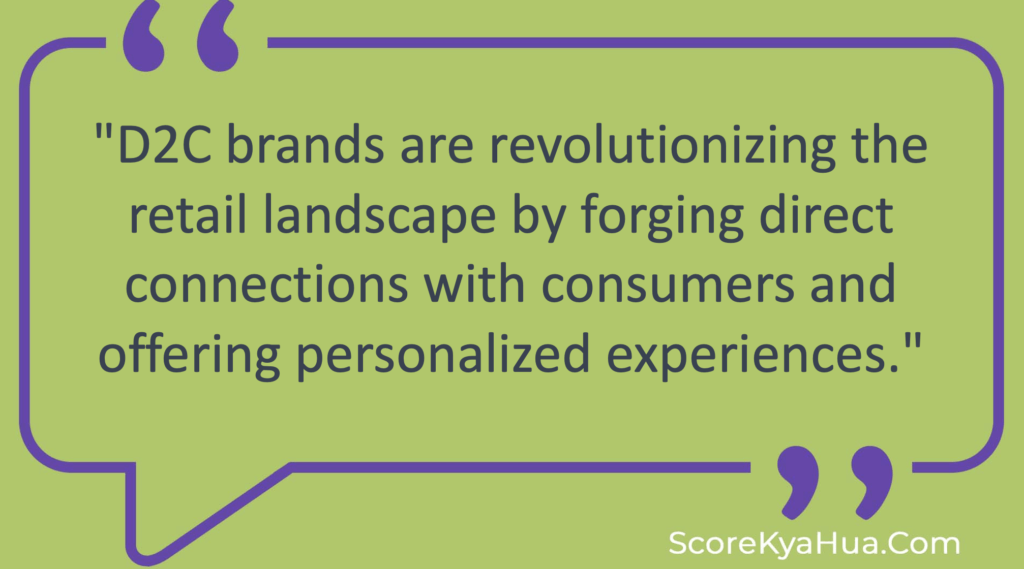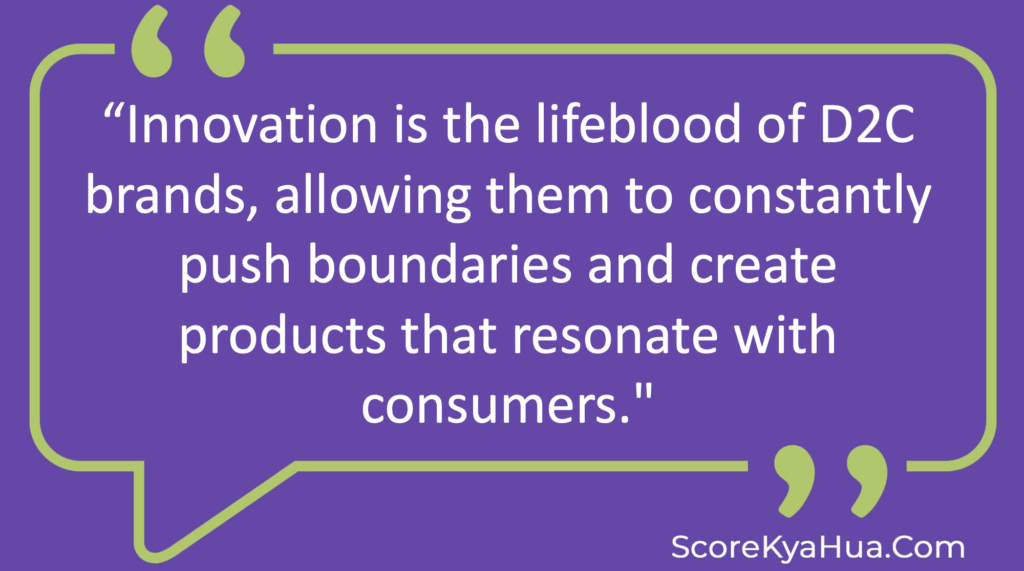As a D2C founder, people ask me questions like: “What makes D2C bands special, why the D2C are Popular and how They Benefit Customers?” quite, so I thought of writing a post on the same (I will keep updating this post in the coming time). In the ever-evolving world of retail, a new breed of brands has emerged, challenging the traditional norms and rewriting the rules of commerce. Direct-to-Consumer (D2C) brands have revolutionized the way products are brought to market, captivating consumers with their unique approach and disrupting industries once dominated by established players. What sets these brands apart? What makes them special?
In this post, we will delve into the world of D2C brands, exploring the key characteristics that define them, their innovative strategies, and the impact they have had on both businesses and consumers alike. Prepare to discover what makes D2C brands a force to be reckoned with in today’s competitive marketplace.
Key Points
The Growing Market of Young Consumers
By 2030, India is projected to have the largest young consumer market in the world, with 357 million consumers under the age of 30. Find out how D2C brands are capturing the attention of this market.
Cutting Out the Middlemen
Unlike traditional retail models, D2C brands bypass intermediaries such as distributors and brick-and-mortar stores, allowing them to sell products directly to consumers. By eliminating these middlemen, D2C brands can maintain greater control over their product quality, pricing, and customer experience. This direct connection with customers enables them to build strong relationships, understand their needs, and deliver personalized solutions.

Digital-first Approach
D2C brands are predominantly “digital-first” in their operations, leveraging digital channels as their primary point of engagement with consumers. From marketing and sales to customer support and fulfillment, these brands harness the power of technology and digital media to establish a direct line of communication with their target audience. This digital-first approach allows for greater flexibility, agility, and scalability in reaching customers across various online platforms.
Customer-Centricity
D2C brands place a strong emphasis on understanding and catering to the evolving needs of their customers. With direct access to consumer data, feedback, and preferences, these brands can gather valuable insights to inform their product development, marketing strategies, and customer service initiatives. By prioritizing customer satisfaction and continuously adapting to meet their expectations, D2C brands foster loyalty and build long-lasting relationships.

Innovation and Agility
D2C brands thrive on innovation, leveraging their agility and adaptability to introduce new products and experiences to the market quickly. With smaller batch sizes in production, they can experiment and iterate faster, responding to consumer demands and trends in real-time. This innovation focus has led to the creation of new product categories and sub-categories, opening up exciting avenues in sectors such as personal care, cosmetics, electronics, health & wellness, and food & beverages.
Data-Driven Decision Making
Data is at the heart of D2C brands’ operations. By harnessing customer data from various sources, including social media interactions, reviews, and feedback mechanisms, these brands gain valuable insights into consumer behavior and preferences. This data-driven approach enables them to make informed decisions related to product development, marketing campaigns, and customer service, resulting in more effective strategies and faster growth.
Enhanced Customer Experience
With D2C brands, the focus is not just on the product but also on delivering an exceptional customer experience. By maintaining control over the entire customer journey, from discovery to purchase and beyond, these brands can create seamless and personalized interactions. Through detailed product descriptions, easy sampling options, transparent reviews, and efficient customer support, D2C brands strive to exceed customer expectations and foster brand advocacy.
Key benefits and examples of D2C brands
| Key Benefits of D2C Brands | Examples |
|---|---|
| Direct consumer interaction | Real-time customer feedback and personalized customer experiences |
| Focus on innovation | Rapid product launches and exploration of new ideas |
| Large market reach | Targeting millions of online customers through digital channels |
| Positive unit economics | High gross margins and early profitability |
| Data-driven decision making | Utilizing customer data for informed product and marketing decisions |
| Empowering entrepreneurs | Reduced barriers to entry for young business owners |
| Brand control | Maintaining consistent brand identity and messaging |
| Enhanced customer experience | Personalized recommendations and seamless shopping journeys |
| Data analytics for insights | Tracking market performance and making data-driven decisions |
Conclusion
Direct-to-Consumer or D2C brands have redefined the retail landscape, offering a fresh approach that prioritizes customer-centricity, innovation, and direct engagement. By cutting out middlemen, leveraging digital platforms, embracing data-driven decision making, and focusing on enhancing the customer experience, these brands have disrupted traditional industries and carved out a niche for themselves. As consumers increasingly seek convenience, personalization, and authentic connections, D2C brands are poised to continue reshaping the future of retail, leaving a lasting impact on both businesses and consumers alike.
You may also like:
> Get Ready for a Retail Revolution as Big International Retail Brands Coming to India in 2023

